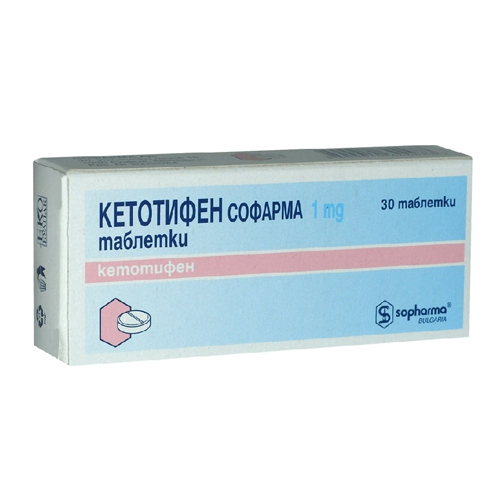Ketotifen Zaditen by Novartis
Zaditen is an weight loss drug, its active substance is Ketotifen. This drug is manufactured by Novartis.
Zaditen is often used to minimize the frequency and severity of asthma attacks. This medication may allow for a reduction in the use of other asthma medications. Ketotifen is not effective in treating an active asthma attack.
In bodybuilding Zaditen is very popular by its ability to inhibit the down regulation of beta receptors caused by drugs like Clenbuterol. Clenbuterol, Albuterol and Ephedrine used to be cycled on and off because they desensitize the various receptors they act on to produce their lipolytic effect. Ketotifen would therefore allow the use of these fat burning drugs for much longer periods. Ketotifen has a second unique mechanism of action by its powerful effect to up regulate the body’s beta-adrenergenic receptors, primarily the beta-2 receptors.
This property makes Zaditen an effective compound to use when combined with Clenbuterol. When using Clenbuterol the body’s beta-2-adrenergic receptors down regulate very quickly only making Clenbuterol a useful fat burner for two week cycles. When implementing a drug like Zaditen the rules are broken, allowing bodybuilders to use Clenbuterol for cycles of twelve weeks or longer.
Ketotifen Zaditen HOW DOES IT WORKS?
The dosage of Zaditen should be 2-3 mg per day in order to prevent the usual down regulation that is often seen with the use of Clenbuterol. Some side effects may occur with the use of Ketotifen due to the drugs antihistamine properties. These include, appetite stimulation, weight gain, and drowsiness. Usually these side effects are not seen when the daily dosage of Zaditen is 2 – 3 mg. Bodybuilders should remember that this dosage is the optimal dose.
KETOTIFEN ZADITEN SIDE EFFECTS:
Along with its needed effects, Zaditen may cause some unwanted effects. This drug may cause the following side effects: Chills; cough; diarrhea; fever; general feeling of discomfort or illness; headache; joint pain; loss of appetite; muscle aches and pains; nausea; runny nose; shivering; sore throat; sweating; trouble sleeping; unusual tiredness or weakness; vomiting. Some of rare side effects: Abdominal or stomach pain; blistering, itching, peeling, or redness of skin; bloody or cloudy urine; clay-colored stools; convulsions; dark urine; difficult, burning, or painful urination; dizziness; frequent urge to urinate; muscle spasm or jerking of all extremities; rash; sudden loss of consciousness; unpleasant breath odor; vomiting of blood; yellow eyes or skin.
Ketotifen History:
Ketotifen was globalized as a prescription medication by Novartis. It is presently prescribed for allergies, allergic conditions, and (most commonly) the management of asthma in more than three-dozen countries around the world. The most widely available brand name is Novartis’
Zaditen, which is sold throughout most parts of Europe and Asia. In addition to generic forms of the medication, dozens of other brand names can be found in many different markets as well. Ketotifen fumarate is approved for sale in the United States, but currently only as an ophthalmic anti-allergy solution (Zaditor), not an oral allergy/asthma medication. The dosage of ketotifen fumarate in this product is also too low for it to be ·considered useful for any other (off label) purpose. Given the ready availability of ketotifen fumarate in other countries, the drug is easily diverted for black market sale. As of now, it is not extremely popular with bodybuilders and athletes.
The UK guidelines on the clinical management of asthma consider ketotifen to be ineffective for the management of this disease. There is admittedly conflicting data on the potential usefulness of ketotifen fumarate for this purpose, with some studies reporting positive results and others showing an insignificant effect. A thorough review of the data published on the Cochrane Database of systematic Reviews in 2004 concluded that it appeared to have some usefulness in controlling asthma and wheezing in many children, but the variability of the disease and response to the drug meant that these positive results could not be generalized for all asthma patients.

